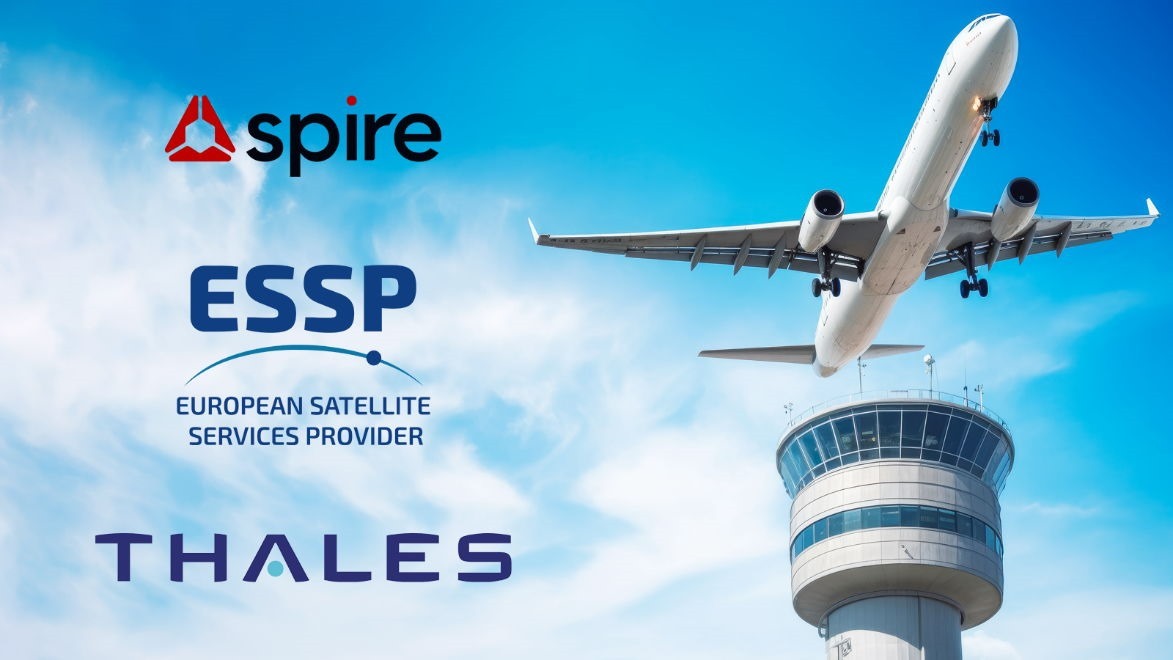
Thales, Spire Global, and European Satellite Services Provider plan to launch a new, space-based network for tracking aircraft. The Memorandum of Cooperation aims to support Air Navigation Service Providers and other air traffic management organizations, ultimately delivering spoof-proof services to the industry.
This innovative satellite-based surveillance service … will play a crucial role in shaping the future of the skies, serving as a vital facilitator for trajectory-based operations and laying the foundation for a safer, more environmentally friendly, and cost-efficient ATM system. – Christian Rivierre, vice president, Airspace Mobility Solutions, Thales
Spire is no stranger to satellite-based ADS-B services. The company provides data today for Flightradar24, among other customers. Similarly, Aireon provides real-time, satellite-based ADS-B services, with its payloads flying on the Iridium NEXT constellation
Under the new deal, however, a specialized constellation will be developed, with eyes to a second generation service as well.
The first generation solution targets a 100-satellite constellation, fully certified, commercialized, and in service by 2027. Spire will develop the space segment, including system design, building the satellites and payloads, ground control and data collection. Thales will provision the ground air traffic management system and the service supervision infrastructure. ESSP will manage the certification and the delivery of the service for air traffic surveillance purposes and perform 24/7/365 operations and supervision, ensuring the compliance with real-time, safety-critical requirements imposed to ATC.
The companies anticipate a five-year replacement cycle for the satellites, allowing for continuous renewal of technologies. This could, eventually, include a second generation of aircraft tracking technology. Developed in parallel with the initial constellations, the trio aims to design and demonstrate a system that goes beyond ADS-B for tracking, without relying on GNSS/GPS satellites.
Avoiding GPS spoofing and jamming challenges is especially significant of late, with Russia accused of such interference across broad areas of Europe. Assuming a successful test of the new solution, that platform could potentially be integrated into a second generation of satellites delivering integrated services for air traffic control by the end of the coming decade.
A favor to ask while you're here...
Did you enjoy the content? Or learn something useful? Or generally just think this is the type of story you'd like to see more of? Consider supporting the site through a donation (any amount helps). It helps keep me independent and avoiding the credit card schlock.

Leave a Reply